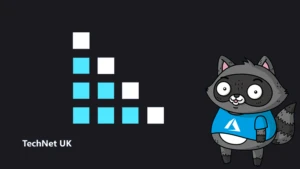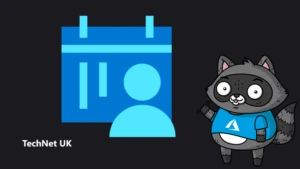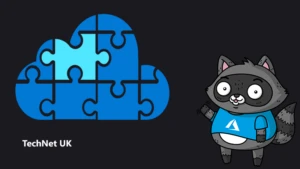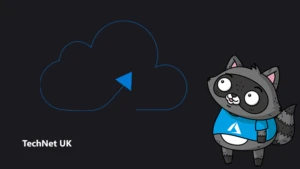
Bringing the diversity of Scottish Summit online

 Scottish Summit 2021 is on the horizon, with a whopping 365 virtual sessions available for free when the event kicks off on February 27th. Ahead of the event we spoke to Mark Christie and Iain Connolly, co-founders of Scottish Summit, about the origins of the event, their push for diverse speakers, and what we can expect on the day.
Scottish Summit 2021 is on the horizon, with a whopping 365 virtual sessions available for free when the event kicks off on February 27th. Ahead of the event we spoke to Mark Christie and Iain Connolly, co-founders of Scottish Summit, about the origins of the event, their push for diverse speakers, and what we can expect on the day.
Chris: How did Scottish Summit get started?
Mark: The event got started when somebody told us that there wasn’t a community here in Scotland. When we spoke with an event organiser and said we wanted to run something in Scotland, we were told that there’s probably not a market here – that we might as well be booking a room for just 10 people to show up.
We took that as a challenge. We knew that there’s a big community in Scotland. We wanted to get that community together, get them talking and sharing ideas, and try to bring it to the forefront of the BizApps scene at the time. That was the original goal.
Iain: I think we were aware that there were lots of small, mini-nucleus type user groups with different people getting together, so we decided to leverage that and try to pull it together as one ultimate force.
This idea was born back in 2018, where it took us a few months to put the first event together.
C: What are the key values and principles the event lives by?
M: From day one it’s always been about including people. It’s about being inclusive. It’s about giving people the opportunity to learn, to give people who haven’t been able to speak at an event before the chance to do that. For example, it’s no secret that there aren’t a lot of female speakers being given the opportunity to speak at big events. So for our first event, myself and Iain aimed for a 50/50 split between male and female speakers. As it turned out we also had a guest speaker do the closing keynote, meaning we finished with more female speakers than male speakers. For us, that was a big statement.
I: I think the key ethos for me, if I had to summarise it in one word, is respect. Treat people the way you want them to treat you. We do suggest people leave their egos at the door, as they’re not welcome at the event. We want to make it completely even for everyone, whether you’re a newcomer or you’re an absolute expert. We want you there at the event, we want to make sure you’re comfortable and that we tailor things for you as much as we can.
C: How have you attracted a diverse group of speakers?
M: That’s something we’ve been quite good at. We’ve seen a trend where the same speakers bring out the same material at the same events every single month, and we wanted to freshen things up a bit. There are two things that we’ve done: every session that was submitted to Scottish Summit had to be a new session that hasn’t been done before, and any new speakers that apply for the event will be accepted.
We have mentorship programs with the MVP community and local user groups so that speakers are not just accepted and thrown to the wolves – we’ve provided them with platforms to learn. We also have weekly meetings with the new speakers to make sure they get tips on how to do their slides, how to present correctly and how to promote yourself within the community.
We’ve had lots of people come in and get involved to give these new speakers a platform, and that’s really what this year’s event is all about – fostering new speakers and giving them the platform to showcase what they can do.
I: We’ve been quite a safe space for inclusiveness and I think now that we’re an online event this has continued, just on a more global scale.
M: We’ve also been very good with our policies; our speaker policies, our attendee policies, even our sponsors have a policy that they have to sign up to. At last year’s event, we were the first event to have gender-neutral bathrooms at a conference. These are just the sort of things that we’re always thinking about – ways you can feel safe and included.
By switching to an online event, would-be speakers and attendees who couldn’t afford the travel, or who couldn’t get time off work or have children to look after, can now be catered for. We understand you’ve got things to do, that you’re not going to be at every session all day. We’ve even got cool drawings for you to print off and have your kids colour in while you’re attending. We’re doing things to make Scottish Summit as inclusive as we can.
I: Covid is obviously the main reason why we’re virtual this year. We expected to be out of Covid at this point, but we’ve always had the capacity to support people that can’t do something on a Saturday, be it religious reasons, family reasons or work. For people that can’t commit to doing a live session at the weekend, we allowed and supported pre-recorded sessions, and we’d be able to drop them into the event so that speakers could still participate. With Covid, and as we’re all still in lockdown here in the UK, it’s allowed us to expand that even further and have a bigger blend of pre-recorded sessions versus live sessions simply due to the situation the world’s in right now.

C: With Scottish Summit becoming an online event this year, what has this meant for the local community?
M: We have a specific track for Scottish speakers to highlight the talent pool in Scotland.
I: We had bigger plans for that, as we had originally planned to record all of the Scottish sessions from one central location, but obviously because of Covid we can’t all get there.
M: In terms of the community, we’ve got about 60 volunteers who are helping run the event with us. Some of the people who maybe don’t want to speak have come onboard as volunteers to help out, and I think this will galvanise the community. Our background is in Dynamics and BizApps, but with so many different people helping out it’s bringing the whole Microsoft tech stack community together, which is brilliant.
I: It’s important to highlight that it’s a community event – it’s the tech community that has come together. Yes we have sponsorships and vendors at the event, but because it’s free and running on a weekend, people are largely giving up their own time to attend. So we do attract a different audience and we have a really high attendance rate because of that. These are people that genuinely want to come to the event, that want to help out at the event and take part in anything around the event itself.
C: How has the process of making Scottish Summit online been?
M: We initially didn’t plan to do an event at all in 2021 – we were going to wait and do an in-person event instead in 2022. We did bow to a little bit of peer pressure, as there were many people looking for an event this year, so we decided we would go online. We probably spent about four months working with different app providers on how we could do this, mostly because we didn’t want to do anything in half-measures. If we were going to do it, we’re going to make a statement out of it. So we chose the right app partner who could meet our needs.
The biggest challenge we had was finding someone who could host the video and do the livestreaming. But we’ve followed the same principals as previous Scottish Summits – the call for speakers was still managed through Sessionize, the tickets were still managed through Eventbrite, and the organisation and volunteering was all done through Teams. The only difference was that we’re not having people fly in and booking hotels. It’s opened up the pool of speakers, but also not changed too much from an organisational standpoint.
I: There has been a learning curve because of the flip to a virtual event. We’re used to finding a physical building to hold it in, then with the building space we could envision the event. Moving online presented its own set of challenges for us to overcome. Yeah we’re tech, and yeah we understand tech, which to some extent causes problems when we speak to app providers because we know what we want and how things should work from a backend perspective.
So that’s given us some technical challenges, and we’ve had to learn how to compromise around what we do in-person versus what we do virtually. But tenacity comes through, and we’re producing a really good event off the back of it.

C: What are you hoping to have achieved by the end of the event?
M: Our main priority is to highlight the new speakers, giving them a platform that’ll get them other speaking engagements, and to get them better known within the community. Another is that if we run an event and one person is able to take away some knowledge, that’s a successful event for us. If people are given the opportunity to learn and to feel comfortable in a nice environment, that’s it for us.
I: If people can take something away after having a great experience, whether it’s because they’ve made a new connection, or whether they’ve learned something new, that’s the point of the event. On a personal level, I’ve already made friends that I never would have known before, because the event is reaching a global audience.
C: For someone that hasn’t attended Scottish Summit before, what can they expect from the 2021 edition?
I: They should expect an absolute overload of information – there’s so much going on on the day that there will be something for everyone. It should be laid-back on the day but if you haven’t attended before do come along, even grab one of us on Twitter or through the Scottish Summit website and just let us know a little bit about you. If you can’t be with us on the day, we’re going to be uploading the sessions to YouTube once they’ve been recorded so don’t fret about the mass of information or the overload of sessions, because you’ll be able to watch them again and watch ones you couldn’t catch on the day.
M: For me, it’s a quirky event. We’re not aimed at business, we’re aimed at the community. We’ve always said that we want to make events that we’d personally like to attend, so we hope it’s an event that everyone wants to attend too. It’s relaxed, fun, and has a quirky atmosphere where you can meet new connections and learn.
I: As Mark says, if we would want to go to that event, having been to many events and having been in the community for a long time, then other people would like to go to it as well. That’s just propagated further as we get more people on board, as we look at who they want to see, and we try and meet that demand. There’s a natural growth in there.
M: It’s an event like no other. It’s going to be a laugh a minute with the things we’ll be doing. We’ve got prize giveaways and so many random things planned. You’ll have to be there to see just how mad it actually is!




